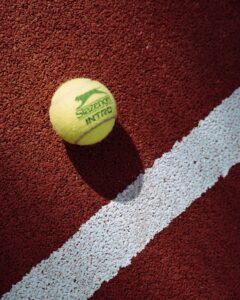Developing a Winning Mindset: Strategies for the Padel Mental Game
3 min read
Developing a Winning Mindset: Strategies for the Padel Mental Game
As a padel player, you already know that this sport requires a combination of physical and mental skills. While practicing your technique and fitness is crucial, developing a winning mindset is equally important. The Padel Mental Game can help you to stay focused, confident, and resilient on the court, no matter what your opponents throw at you. In this article, we’ll explore some strategies that can help you to develop a positive and effective mental approach to padel.
1. Visualize Your Success
Visualization is a powerful tool that can help you to improve your performance in any field, including padel. The idea is to imagine yourself playing your best game and achieving your goals. Visualize the court, the ball, your movements, and the reactions of your opponents as vividly as possible. This will help to create a mental “muscle memory” that can be triggered when you step onto the court. You can also use visualization to prepare for specific scenarios, such as playing against a certain player, dealing with pressure, or making a comeback. Try to make your visualizations as realistic and positive as possible.
2. Control Your Breath
Breathing is often overlooked in padel, but it can have a significant impact on your mental and physical state. When we are stressed or anxious, our breathing tends to be shallow and erratic, which can make us feel even worse. By learning to control your breath, you can calm yourself down, increase your oxygen intake, and regulate your heart rate. Before and during the game, take some deep and slow breaths, focusing on your belly rather than your chest. This will help you to relax and stay centered.
3. Focus on What You Can Control
One of the biggest challenges of the padel mental game is dealing with uncertainty and unpredictability. You cannot control what your opponents do or how the ball bounces, but you can control your own thoughts and actions. Instead of worrying about things you cannot change, focus on what you can do to improve your game. This can include your technique, your communication with your partner, your body language, your strategy, and your attitude. By taking responsibility for your own performance, you will feel more empowered and less vulnerable.
4. Learn from Your Mistakes
Mistakes are bound to happen in padel, but they do not have to define you. Instead of getting frustrated or discouraged, use your mistakes as opportunities to learn and grow. Analyze what went wrong, why it happened, and what you can do differently next time. Focus on the process rather than the outcome. This will help you to become more resilient, adaptive, and self-aware.
5. Build a Supportive Environment
Your mental game is not only about you, but also about the people around you. Surround yourself with supportive and positive individuals, such as your padel partner, your coach, your friends, and your family. Share your successes and struggles with them, and ask for their feedback and encouragement. This will help you to feel connected, motivated, and accountable.
Conclusion
The padel mental game is an essential aspect of your performance that can make a huge difference in your results and enjoyment of the sport. By developing a winning mindset, you can stay focused, confident, and resilient no matter what challenges you face on the court. Use these strategies to visualize your success, control your breath, focus on what you can control, learn from your mistakes, and build a supportive environment. With time, practice, and dedication, you can become a mentally strong and successful padel player.






